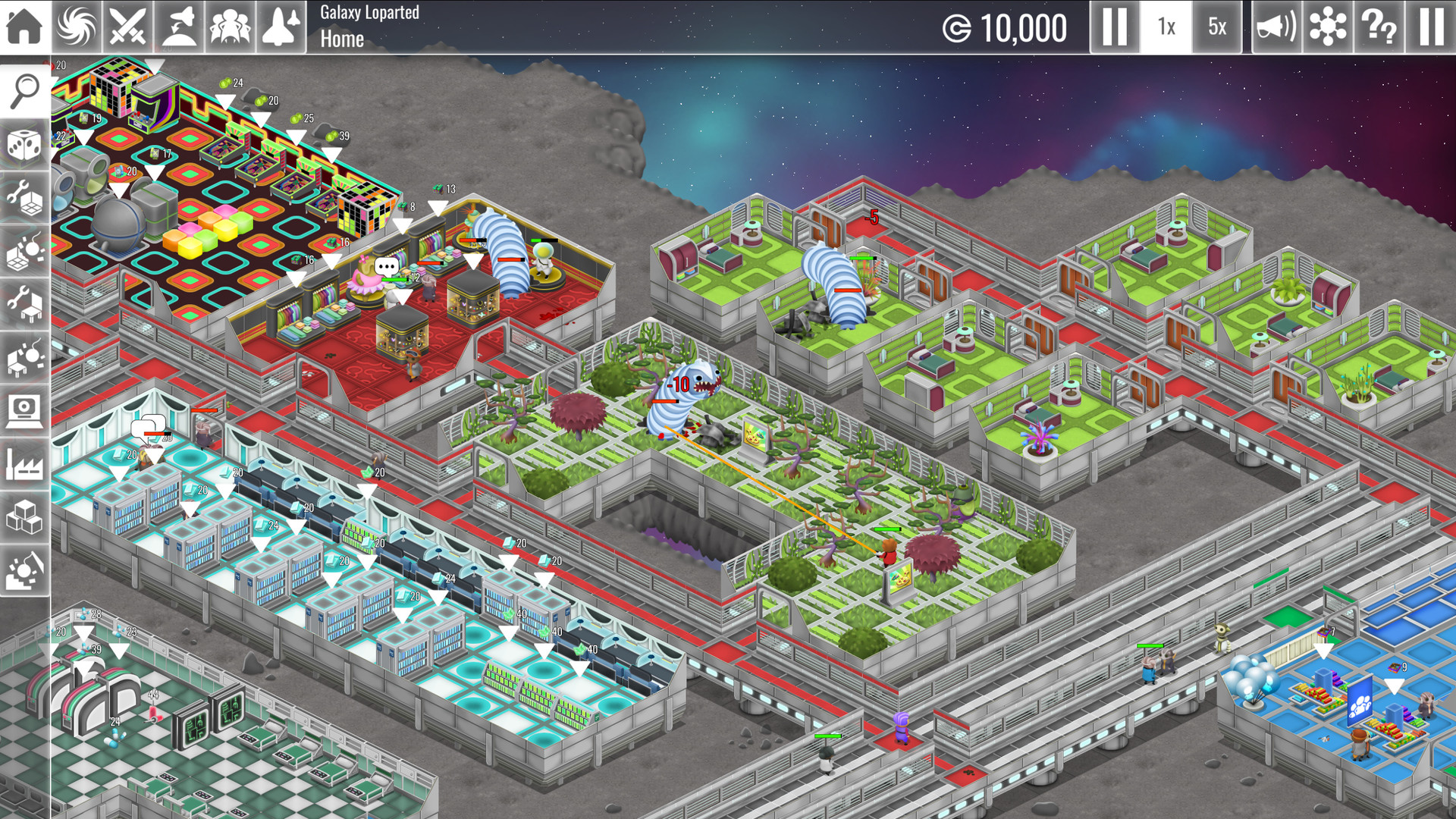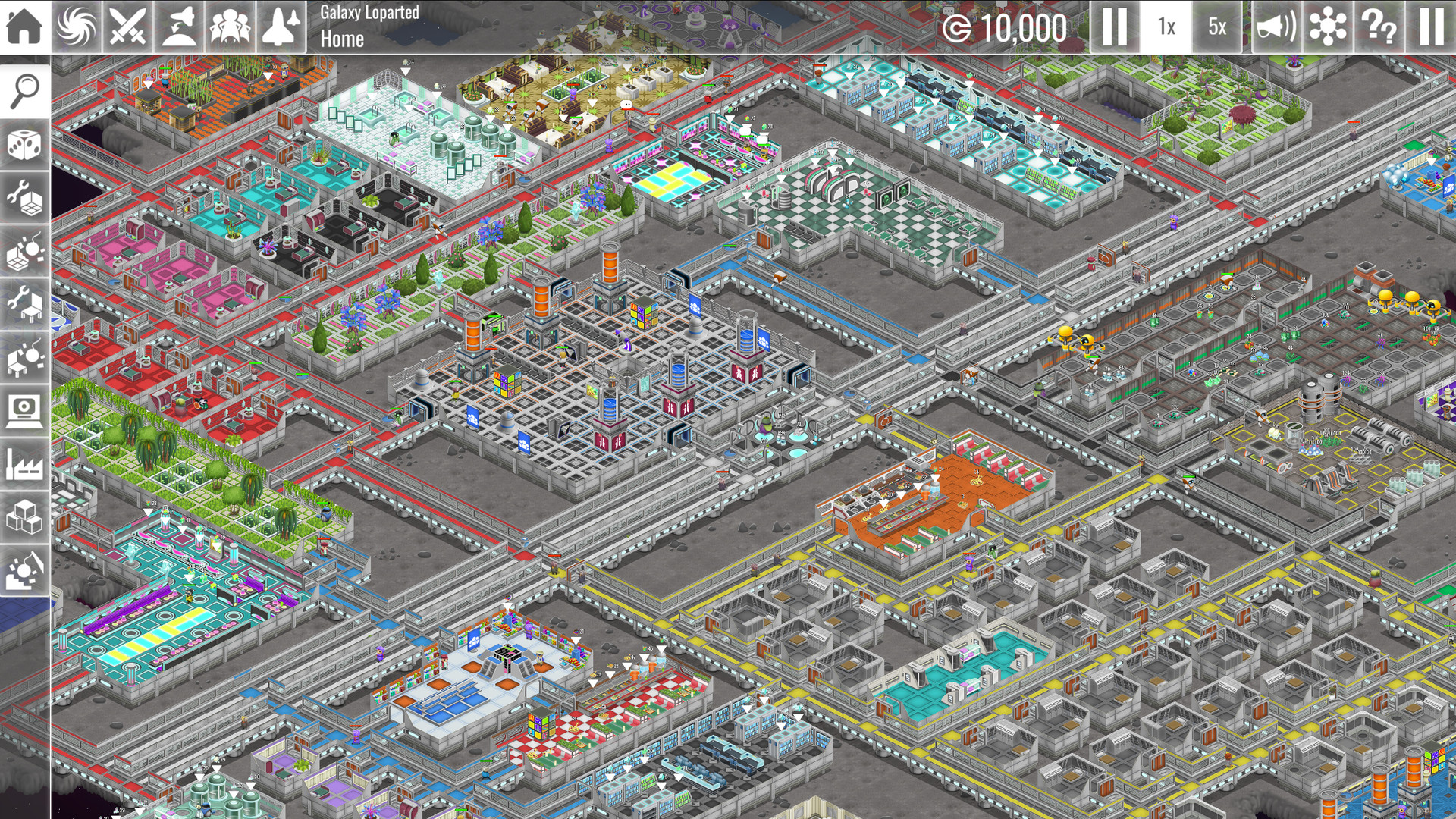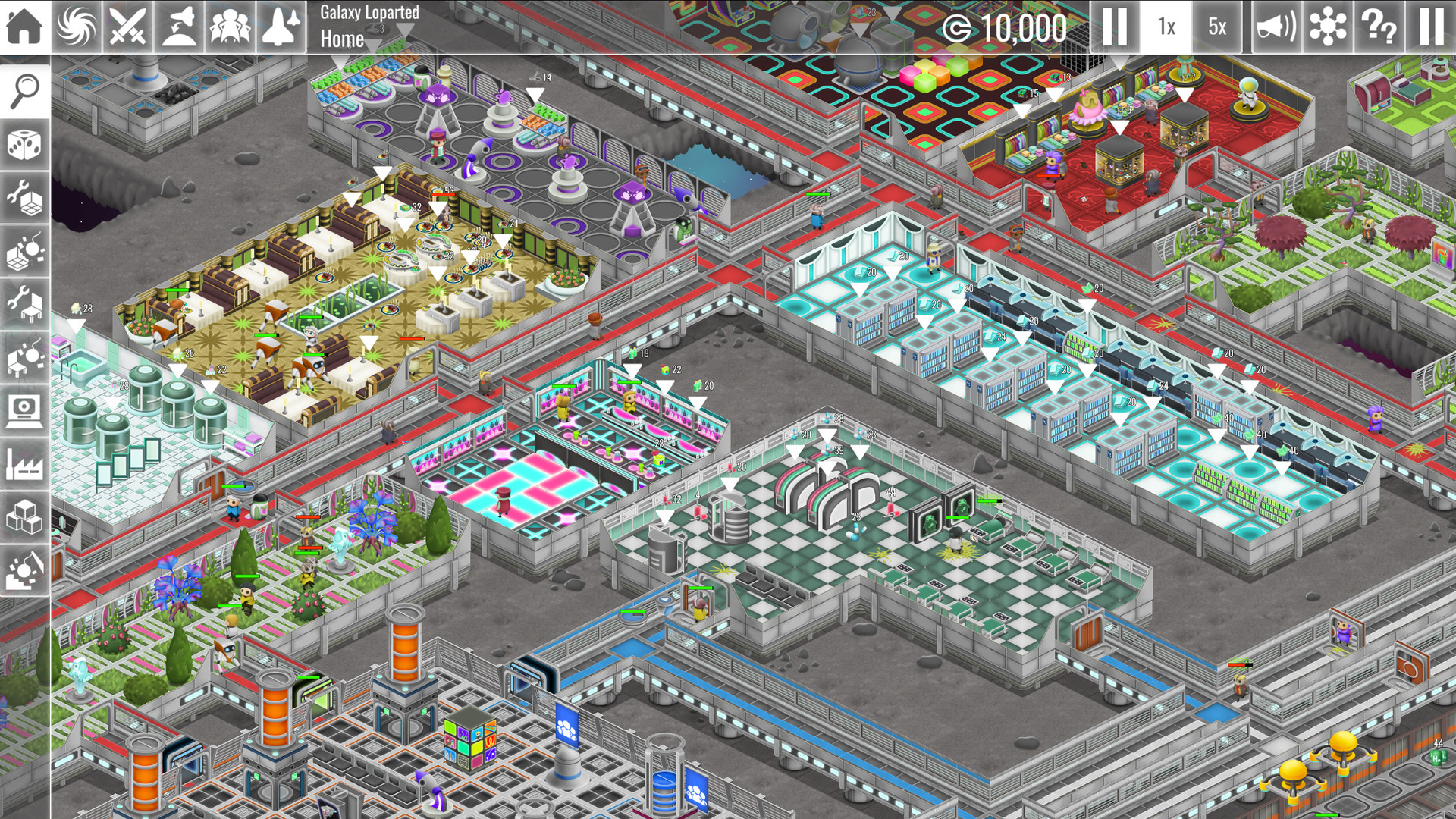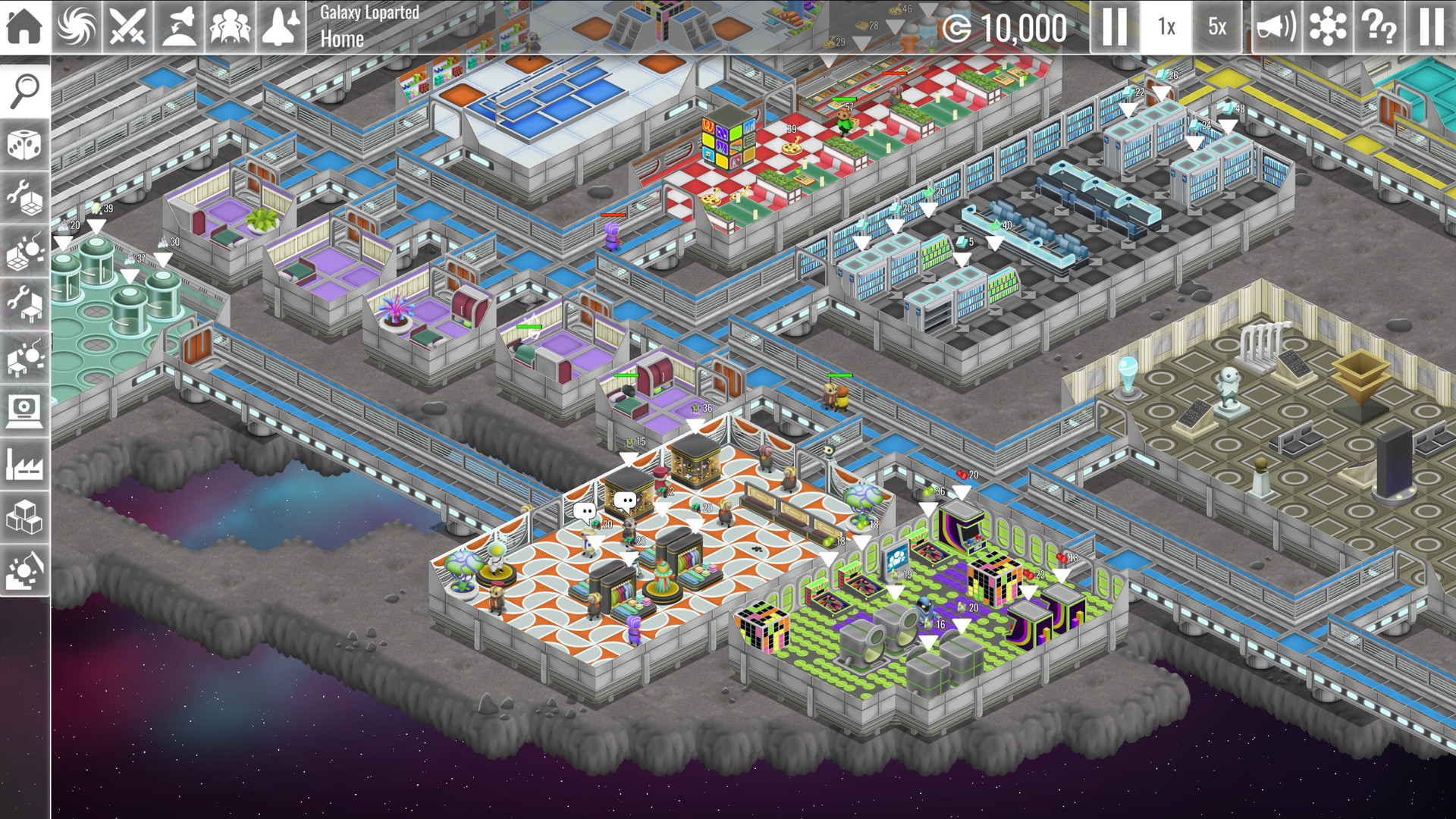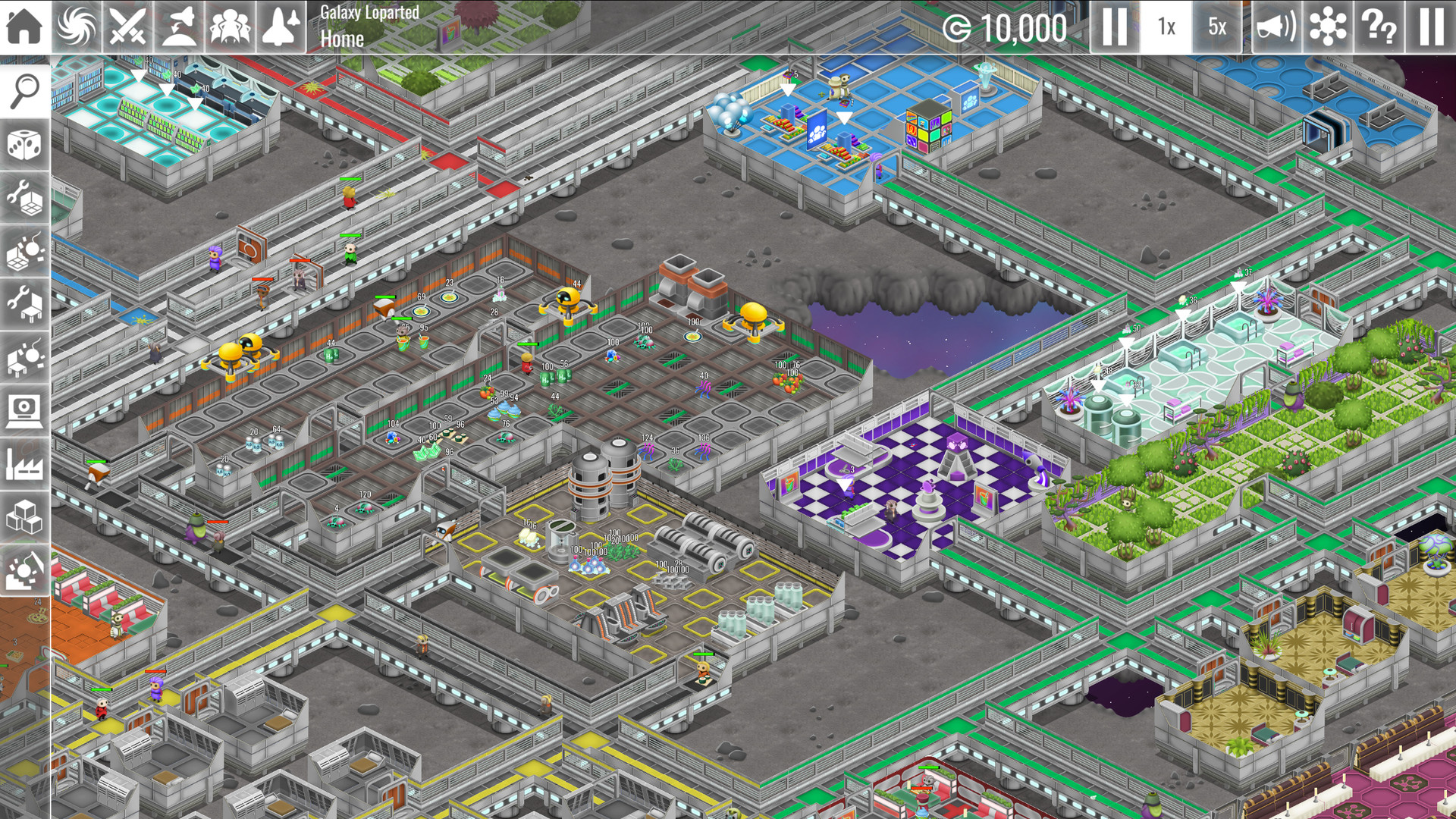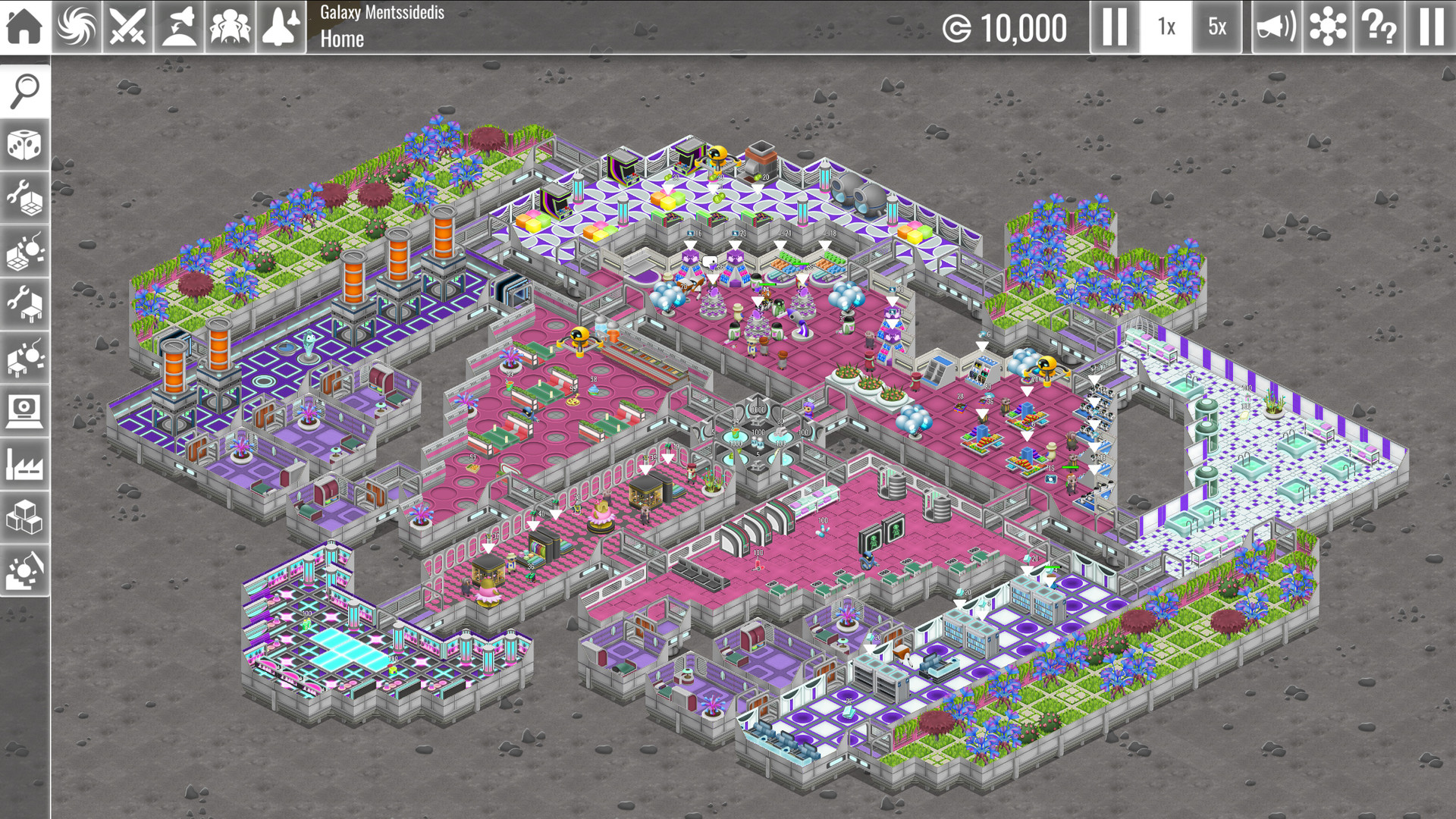
The Spatials are back on a new adventure!
The Spatials: Galactology is The Spatials reimagined as a deeper, more rewarding simulation game. With mod support and active pause, Galactology adds new items and structures to build, trade routes to exploit, planets with many new variables, sophisticated AI, civilizations that actually attack your station -- and unique gameplay systems behind every object and room.
Key Features
- Design a space station and watch your crew as they build it in real time
- More freedom for your designs: use any room with any objects, color the floor tiles as you wish
- Reinforce your space station with new buildings, management decisions, and staff
- Assemble robots to assist with station chores
- Explore a detailed simulation with many systems to play with -- including manufacturing, research, healthcare, disease, emotional breakdowns, combat, hunger, thirst, cleaning, decay, security, FIRE!, and more
- Handle complex logistics, requiring restocking and inventory control
- Earn in-game cash by growing your space station’s hospitality business
- Designate staff for your bar or your research lab
- Visitors and officers have a mind of their own. Make sure their needs are met!
- Build hospitals to care for the wounded and diseased
- Secure your station with cameras, scanners and turrets
- A randomly-generated galaxy with 100+ planets
- Build spaceships and explore the galaxy
- Explore the surface of planets and asteroids
- Engage in real-time combat to forge alliances and make new enemies
- Find natural resources, civilizations and ancient ruins
- Establish trade routes with your allies
- Develop and download gameplay mods from the Steam Workshop
- And more, much more is coming!
About Weird and Wry
Weird and Wry is a Barcelona game development studio founded in 2014 by two brothers: Carlos and Max Carrasco. Carlos (a programmer) and Max (an artist) share a love for simulation games and classic play -- which heavily influenced The Spatials, their first project. Inspired by the great classic sim games of the '90s, The Spatials combined classic base-building gameplay (based on isometric tile room building) with a real-time combat system and an exploration campaign. The Spatials was released on Steam in March 2015 and took off! Thanks to its success and growing fan base, The Spatials spawned a sequel -- The Spatials: Galactology, which updates the original concept with deeper gameplay and a whole new take on the space station management business.After the pretest release of 3.6 a lot of issues were found, so most of late May and early June were devoted to finding and fixing them. One particular very obscure crasher delayed the start of 3.7, but it has finally been squashed and I was able to move on and start the new version (3.6.7 contains the fix and it is the current published default build, but saved games started with earlier 3.6.x versions may still be corrupted, keep it in mind!)
The main new content theme for 3.7 is events. Galactology has contained some test events for months now, the familiar invasions, sneakers and impostors. Events are meant to keep station gameplay more varied than a pure min-maxed machine. They will cover a variety of systems so it's not all pew-pew and explosions, but, since the current events are the basis for the new work, I started implementing new invasion-like events for the past three weeks. There's still more than twenty event ideas to explore and implement!
New art for civs screen
Max has prepared new header art for the civs screen, and a small redesign was also done to better fit and prepare the screen for future UI work:




All civs have now unique background art and their full detail, full sized logos and advisors are prominently displayed. The new layout will also enable us to fit the future diplomacy UI in the lower area with a much nicer look and feel.
Top bar redesign and new alert features
The alert system will become more important since it will be the UI mechanism to report and track ongoing events, so more space was required to display alert icons:

The right side of the top bar is now more compact. The guide access will be moved to the tutorial system (when the guide is ready), and the report screen will be moved somewhere else (in 3.x that screen was half-working and mostly useless).
Many events have an "ongoing" mechanic that defines a start and an ending condition. The alert system is now prepared to show this information, and to express some alerts as persisting.
A persisting alert is displayed with an "ongoing" progress, meaning its duration or progress is not fully known (yet). Persisting alerts are always displayed to the left of all alerts:

A persisting alert displays the progress of an event (in this case the % of pirate invaders dead, it was captured just after the last one died). Both the alert icon in the bar and the alert popup display the completion %:

When an event is done its alert is turned into a plain alert and can be deleted normally:

Persisting alerts have an additional visual cue to make them stand out:

Event: Space worm
A huge worm from space is annoyed enough with your advanced technology to come pay a visit. Why? Nobody knows, but it's here and it's pissed off:

The worm has a devastating, fast melee attack with extra long range, but it's rooted in place. It will burrow and surface again every 30s.
Event: Space octopus


Space megabeasts keep attacking you, sigh. It's just the reality of space-ing I guess. The space octopus has a similar melee attack to his pal the worm, but it can move (slowly). It can also pull closer any station defender into its melee range.
Event: The pest

Dozens of fluffy animals are spawning around your station. They look cute but are crowding everything. They only attack when attacked, but in any case they have to go. Kill enough of them to force their queen out of hiding and end the pest for good.
Event: Xenomorphs

Short of Augustus showing up to make some omelette, you better hurry up and deal with those ominous looking eggs before it's too late...

This event also introduces a combined system of progress and countdown timer.
Minimum Setup
- OS: Ubuntu 14.04 64 bit
- Processor: 1.3 Ghz or higher (64 bit only!)Memory: 4096 MB RAM
- Memory: 4096 MB RAM
- Graphics: Intel HD 3000+ / AMD Radeon HD 4000+ / NVIDIA GeForce GT 200+
- Storage: 300 MB available spaceAdditional Notes: Requires stable OpenGL 3.2 drivers with GLSL support
[ 6313 ]
[ 5946 ]
[ 1933 ]
[ 2282 ]

